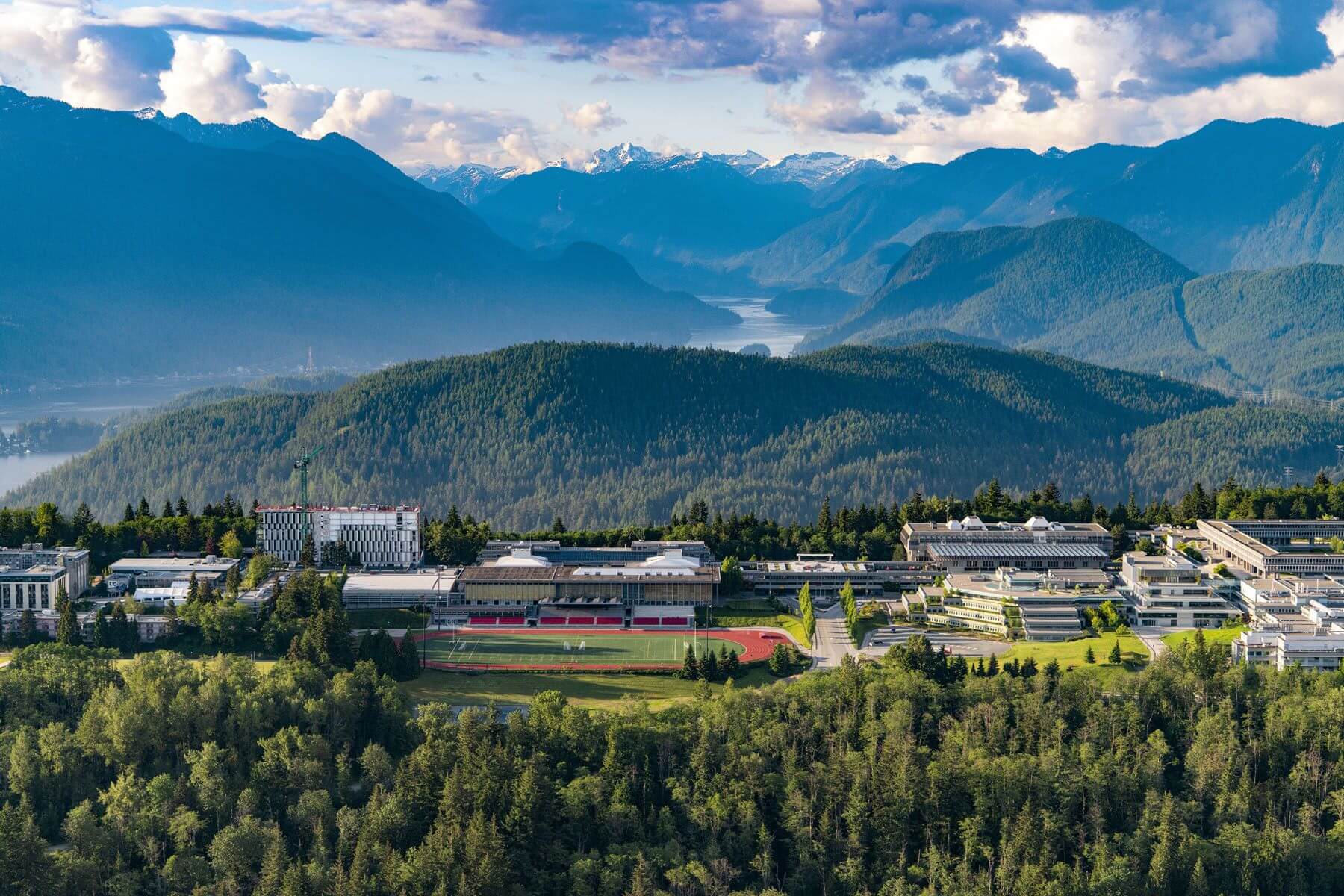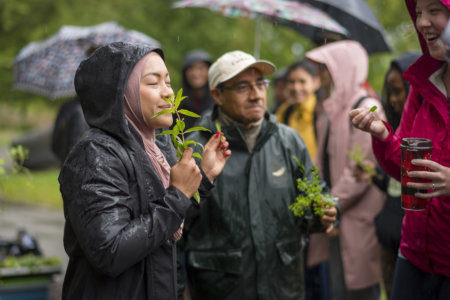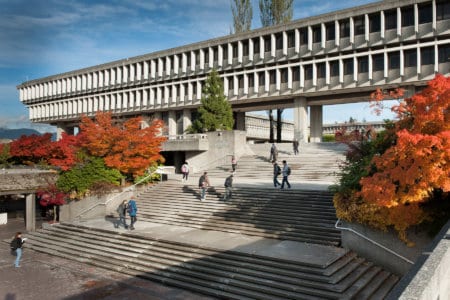Living on a planet that’s burning and a world that’s increasingly divided, it’s easy to feel hopeless. It’s understandable why the climate crisis evokes so many strong emotions, especially uncertainty and anxiety. But there is a global shift to find and apply solutions to the complex challenges we face.
Join environmental professionals helping those most disproportionately impacted by the climate crisis, informing policy, championing sustainability and more.
This begins with a degree that’ll set you up to drive change in a fast-paced and challenging world — something that Simon Fraser University’s Faculty of Environment excels at. Here, students of all backgrounds acquire the knowledge, skills and experience that inspire and empower them to build a better world together.
From understanding past human-land interactions to tackling social justice and environmental challenges, students gain relevant knowledge to become accomplished environmental consultants, resource managers, sustainability entrepreneurs and various other impactful roles.
It’s one thing to learn about the environment but completely different to put the skills you’ve learnt into meaningful action. Simon Fraser University’s Faculty of Environment students get to do both. Jorrin, an Environmental Science student shares his experience working to better understand how soil changes after wildfires. “With this information, we can better prepare and protect communities throughout BC as wildfires become more frequent,” he says.
NSERC funding and an Aiden Serr Memorial award will help him further the research on Natural Sciences and Engineering Research Council of Canada predicting and alleviating wildfires. “I am excited to have received this funding and research opportunity as it allows me to apply the knowledge that I have learned throughout my undergraduate degree in a way which makes a difference in the community,” says Jorrin.
Jorrin’s experience is common among Simon Fraser University (SFU) students. Much of what they learn in their major and the experiential opportunities they participate in will be relevant to their future careers. It’s little wonder the university is known for producing successful graduates, particularly in green careers.
For 14 out of the last 15 years, the university has been crowned as the #1 comprehensive university in Canada, with its Environmental Science programme recognised as a “standout programme” and the Geography programme ranked fourth in the country. It tops Times Higher Education 2023 Impact Rankings for sustainable cities and communities while ranking fifth in the world for its climate action.
While these accolades are impressive, what truly sets SFU’s Faculty of Environment programmes apart is its emphasis on experiential learning. Students actively engage in research and project work alongside professors and industry practitioners, enabling them to gain a deep understanding of their academic field and apply their knowledge to real-world problems. Last year, students in SFU’s Faculty of Environment held 246 co-op internships in 36 cities. The Faculty also offers international and local field schools taking students out of the classroom and into communities to tackle social and ecological challenges. This hands-on approach equips students with relevant skills and enables them to forge valuable connections along the way.
For students interested in gaining expertise in social and natural sciences, community planning, and policy regulation, the interdisciplinary Bachelor of Environment (BEnv) in Resource and Environmental Management programme is an ideal choice, just like it was for Paige. She saw “incredible value” in combining environmental science with policy, social sciences, and economics.
Paige attended the United Nations’ COP27 in Egypt as a student delegate – an invaluable experience to add to all she learned from her programme. Today, she is applying her knowledge of geographic information science (GIS), policy, and ecology on a co-op work term with the Department of National Defence and the Canadian Armed Forces.
“From participating in international climate dialogues, to protecting species at risk in BC, I’m contributing to solutions locally and globally,” she says.
The university is just as committed to acting on climate change, an effort that’s been recognised by Maclean’s Magazine. They have increased the funds in its Socially Responsible Investment portfolio and cut greenhouse gases by more than 50% in 2021, topping the university’s own aggressive Race to Zero targets.
By taking the BEnv in Global Environmental Systems programme, students learn to tackle the climate crisis by examining the intersection of social and biophysical systems, such as housing development and wildlife habitat loss, and discover how to mitigate the negative effects of these systems by mastering advanced data analysis and modelling.
Abby, a Global Environmental System student, learned to analyse data and policy and how to manage resources and apply this to issues that directly impact BC. “I’m assessing the predicted versus actual economic benefits of industrial coal mines operating in critical caribou habitat and First Nations territory,” she says. “This is crucial to determine if the economic benefits can outweigh the negative effects to caribou, an endangered and cultural significant keystone species.”
When she graduates, Abby is set to create an impact in roles such as policy advisor, environmental communication specialist, transportation policy analyst, and many more.
Those looking to approach global challenges in other ways can take comfort in knowing the Faculty of Environment also offers programmes in archaeology, physical geography, and human geography. To find out what else Simon Fraser University can do for your world-changing aspirations, click here.













